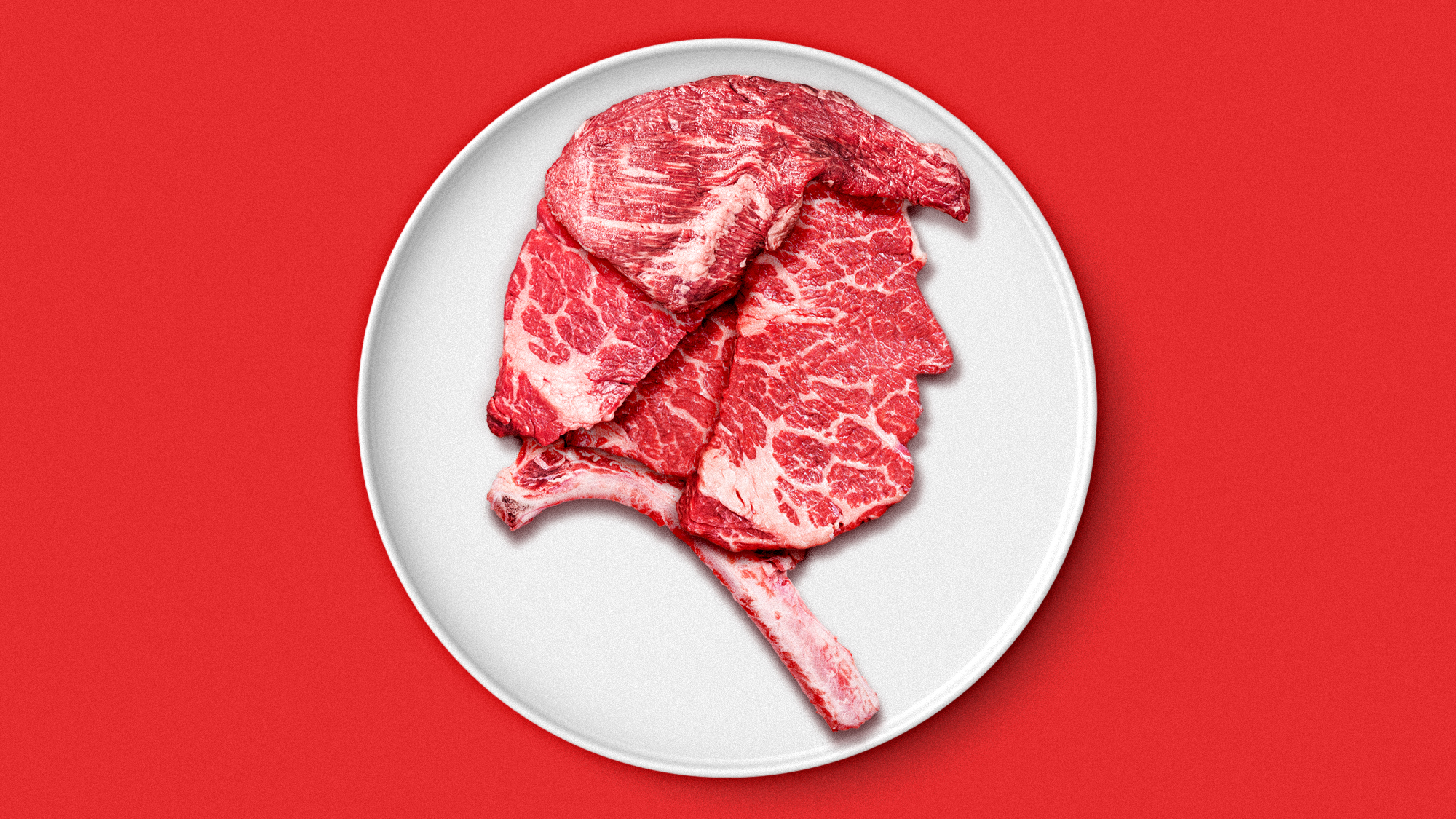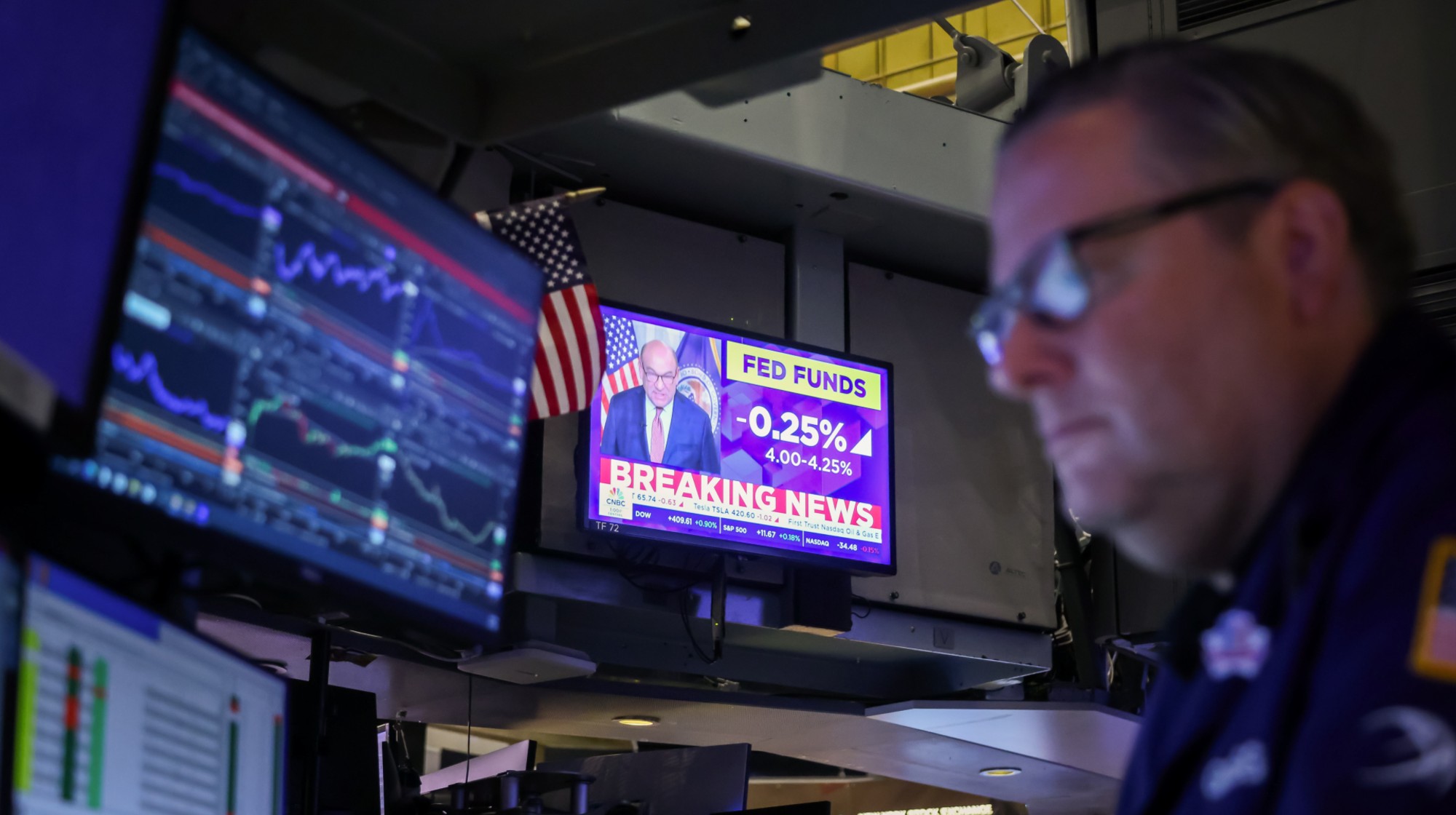How the holidays will look different this year
Have yourself a merry little Christmas — even with inflation and shortages


A free daily email with the biggest news stories of the day – and the best features from TheWeek.com
You are now subscribed
Your newsletter sign-up was successful
With supply chains cramped, extreme weather events on the rise, and inflation permeating the market, this year's holiday season has yet to feel like the post-COVID return to form for which we'd hoped. That said, the forecast's not all bad. Here's everything you need to know:
What challenges lie ahead this holiday season?
There are lots of them. For one thing, inflation is rapidly driving up prices on holiday essentials like food and energy, dampening the celebration for one in ten Americans. Snarled supply chains continue to plague shelves and bump up consumer costs, as retailers contend with goods shortages exacerbated by high demand and long wait times. Labor shortages mean restaurants and bars are being forced to close early or increase prices to manage customer demand. All the while, issues of climate change are impacting the growth and price of certain holiday dessert staples — like wheat, berries, honey, and soybean oil, among others — as well as the supply of decorative mainstays. Not to mention the burden of navigating the ongoing COVID-19 pandemic, in which 29 percent of American adults remain unvaccinated as winter approaches and large gatherings move indoors.
The Week
Escape your echo chamber. Get the facts behind the news, plus analysis from multiple perspectives.

Sign up for The Week's Free Newsletters
From our morning news briefing to a weekly Good News Newsletter, get the best of The Week delivered directly to your inbox.
From our morning news briefing to a weekly Good News Newsletter, get the best of The Week delivered directly to your inbox.
There is some good news, however: despite glum consumer sentiment toward the economy, numbers thus far indicate Americans are holiday shopping anyway. Restaurant, store, and online sales rose 1.7 percent in October, with department stores, electronics and appliance stores, and online retailers all making gains. Such results suggest that, despite headaches for consumers or retailers, holiday sales are still bound to shine.
All that said, what about Black Friday? Are retailers prepared?
Things might look different for smaller stores, but multiple retail giants have already indicated their preparation for both Black Friday and the holiday season in general. Target has reported it has "plenty in stock" for post-Thanksgiving deal hunters, having brought inventory forward and chartered its own cargo ships to circumvent supply-chain knots.
Similarly, Walmart has declared its shelves stocked for winter festivities, after reporting yet another quarter of high sales. And if you've recently found yourself on Christmas decoration TikTok, Home Depot has you and your seasonal-redecoration bug covered, backlogs be damned. The company has utilized both its financial position as well as its massive volume and scale to elude congestion at U.S. ports — in addition to chartering its own shipping vessels, Home Depot's been able to use its stores to facilitate deliveries, and barter with carriers and trucking firms for a better price.
A free daily email with the biggest news stories of the day – and the best features from TheWeek.com
Are people planning on traveling?
It seems so. After a holiday season apart in 2020, and with the U.S. border now open to vaccinated international travelers, several studies have found Americans ready to celebrate with loved ones this year. AAA is estimating Thanksgiving travel to jump within 5 percent of 2019 levels, as about 53.4 million plan to hop on planes, trains, and automobiles heading toward a turkey feast; the rebound in air travel alone will be up 80 percent from 2020 levels. Travelers can expect to be sharing the sky, rails, and road with some 6.4 million more people this year, so definitely come prepared.
On travel sites, tropical destinations like the Dominican Republic, Turks & Caicos, and the U.S. Virgin Islands are seeing unprecedented demand for this time of year; ski destinations have also surged in popularity. And for those opting to travel home for Thanksgiving, 73 percent — more than in 2020 but less than in 2019 — are staying with family, perhaps a comment on lessening-but-still-present COVID fears, especially given often large and indoors holiday affairs.
How will my favorite holiday meals and treats be affected?
Prepare to shell out some more cash. Nearly every component of your Thanksgiving dinner is expected to cost more this year, thanks to those pesky supply chain issues, increased demand, labor shortages, and — you guessed it — inflation. Given the overlap between November and December meal staples (as well as the short interim period), those costs will likely carry over from one holiday to the next.
Turkey prices are projected to hit record highs. Dinner rolls will cost more, because the cost of ingredients needed to make them has gone up. Cranberry sauce will almost certainly cost more given lapses and limits in steel production. Prepare for milk, sugar, and the aluminum pan in which you roast your turkey to get hit, too. Even those ready-to-bake pies aren't safe — extreme weather and climate conditions are hitting crops of ingredients like wheat, berries, and soybean oil, causing both mayhem, shortages, and soaring prices for certain smaller pie manufacturers.
What about my favorite holiday events and cheerful decorations?
For those who celebrate Christmas, festivities often aren't complete without a visit from Santa Claus during a trip to the mall or a neighborhood gift swap. Though knock-off Santas are still on the schedule this year, bookers and managers warn Saint Nicks are currently in high demand, with fewer to go around. And the small number of Clauses who haven't opted out of the labor market are packing their schedules and charging more per hour.
That classic Christmas tree may be harder to track down, as well. Extreme weather events brought on by climate change — like wildfires, droughts, and floods — have pummeled tree growers this season. Even artificial trees, a majority of which are manufactured in China, could be stuck overseas due to supply chain bottlenecks. If you do happen upon your perfect Tannenbaum, expect to pay at least 20 percent more for it, whether real or fake.
How can I circumvent supply and inflation issues while ensuring I'm not adding to the problem? How long will this last?
It is unclear how long such inconveniences will persist. Though the Federal Reserve has continued to insist recent inflation is "transitory," high prices will likely last into 2022, if not beyond. Supply bottlenecks have shown no signs of easing. Until companies are able to keep up with high consumer demand, such issues — fueled and exacerbated by the pandemic, each in their own way — are expected to continue. To avoid extra buying headaches this season, try purchasing local and in-store to avoid shipping delays, or opt for a handmade gift instead. If you do plan on buying, be patient and allow yourself plenty of time to tackle your shopping list. And whatever you do, don't stockpile and panic-buy ingredients, supplies, or gifts — experts say that will make things worse in the long run.
Brigid Kennedy worked at The Week from 2021 to 2023 as a staff writer, junior editor and then story editor, with an interest in U.S. politics, the economy and the music industry.
-
 Quiz of The Week: 14 – 20 February
Quiz of The Week: 14 – 20 FebruaryQuiz Have you been paying attention to The Week’s news?
-
 The Week Unwrapped: Do the Freemasons have too much sway in the police force?
The Week Unwrapped: Do the Freemasons have too much sway in the police force?Podcast Plus, what does the growing popularity of prediction markets mean for the future? And why are UK film and TV workers struggling?
-
 Properties of the week: pretty thatched cottages
Properties of the week: pretty thatched cottagesThe Week Recommends Featuring homes in West Sussex, Dorset and Suffolk
-
 Will Trump’s 10% credit card rate limit actually help consumers?
Will Trump’s 10% credit card rate limit actually help consumers?Today's Big Question Banks say they would pull back on credit
-
 What will the US economy look like in 2026?
What will the US economy look like in 2026?Today’s Big Question Wall Street is bullish, but uncertain
-
 Is $140,000 the real poverty line?
Is $140,000 the real poverty line?Feature Financial hardship is wearing Americans down, and the break-even point for many families keeps rising
-
 Fast food is no longer affordable for low-income Americans
Fast food is no longer affordable for low-income AmericansThe explainer Cheap meals are getting farther out of reach
-
 Why has America’s economy gone K-shaped?
Why has America’s economy gone K-shaped?Today's Big Question The rich are doing well. Everybody else is scrimping.
-
 From candy to costumes, inflation is spooking consumers on Halloween this year
From candy to costumes, inflation is spooking consumers on Halloween this yearIn the Spotlight Both candy and costumes have jumped significantly in price
-
 Why are beef prices rising? And how is politics involved?
Why are beef prices rising? And how is politics involved?Today's Big Question Drought, tariffs and consumer demand all play a role
-
 Fed cuts interest rates a quarter point
Fed cuts interest rates a quarter pointSpeed Read ‘The cut suggests a broader shift toward concern about cracks forming in the job market’
